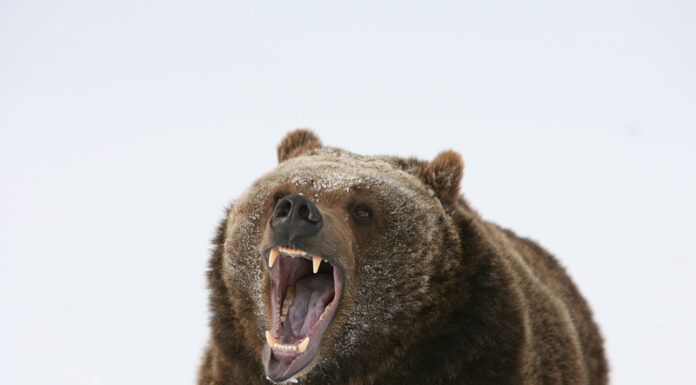A 50-year-old commercial fisherman and salmon troller was mauled to death by at least one brown bear while hunting deer in a remote wooded area near Sitka, Alaska, authorities said Wednesday, October 30, 2024.
Tad Fujioka, chairman of the Board of Directors of Seafood Producers Cooperative and an active advocate for the troll fishery in Southeast Alaska, was reported missing Tuesday evening after failing to return from his hunting trip.
Alaska wildlife troopers, the U.S. Coast Guard, and Sitka Search and Rescue initiated a coordinated search the next day. Teams were sent to the remote wooded area where Fujioka had last been spotted.
The teams reached the location using state trooper and local Sitka-based search-and-rescue vessels, eventually discovering Fujioka’s remains near a deer carcass around 11:30 a.m. Wednesday. According to Alaska State Troopers, the investigation revealed he was likely the victim of a fatal bear mauling.
Evidence at the scene indicated Fujioka had successfully hunted a deer and was field-dressing it when multiple brown bears attacked him. The bears had consumed the deer carcass before leaving the area.
Alaska State Troopers and the Alaska Department of Fish and Game searched for the bears but were unable to locate them due to the remote and difficult-to-access terrain. The incident occurred approximately 600 miles southeast of Anchorage. Only brown bears inhabit this area.
Fatal bear attacks in Alaska are uncommon, but incidents involving brown bears, particularly in remote areas like Sitka, occur. Alaska is home to approximately 30,000 brown bears, making it one of the most populated areas for this species in North America. Most fatal bear encounters occur in regions where human activity intersects with bear habitats. On average, the state records one fatal bear attack every two years, accounting for roughly 29% of fatal bear attacks in the U.S. Since 2000, Alaska has had around 10 documented fatal bear attacks, often triggered by bears defending food or young. While polar bears inhabit the state, they are considered a threatened species and are found further north.
This attack is the most recent fatality, marking the first in the Sitka area in recent years.








